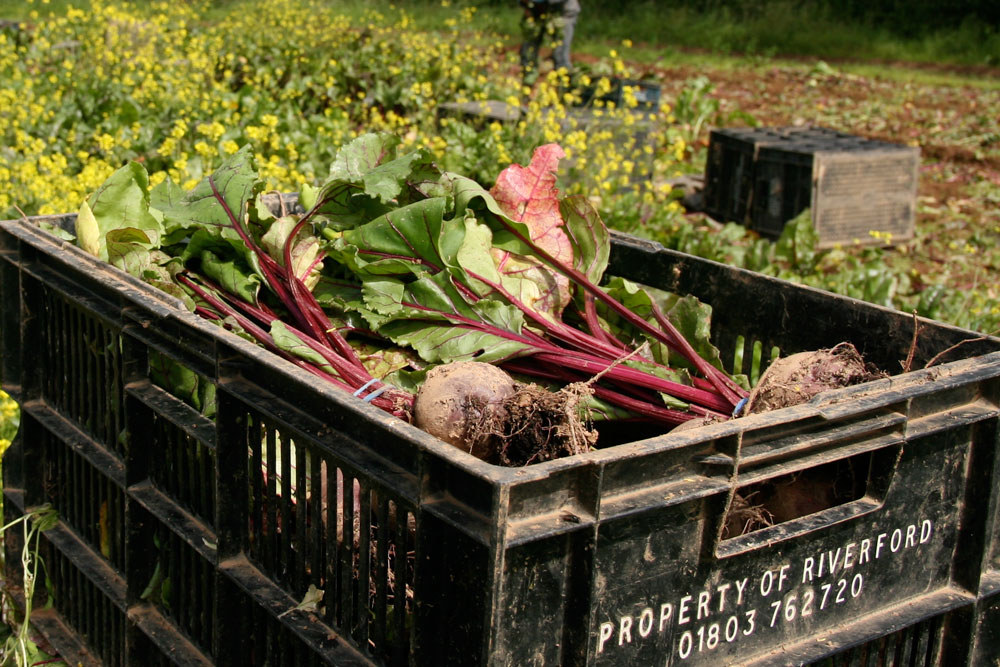
Last week London’s Bargehouse Gallery hosted We Feed The World, an international photography exhibition focusing on the smallholder farmers who still produce 70 per cent of the world’s food. I braced myself for patronising peasant-porn, but my prejudices were quickly allayed by the intimacy and truth of the images. They gave a window into a world in which we all have ancestral roots; one that is fast being replaced by large-scale brutality and destruction. It moved me, as art should, to ask questions: of our world, and of Riverford’s part in it.
Technology and globalism have transformed many industries, often at huge human cost. It would be hard to say to an ex-coal or steel worker that small farmers should be the exception. But how we farm has environmental, social, landscape and health impacts that provide strong arguments against sacrificing it on the altar of global, neo-liberal economics. Big doesn’t have to be bad, but in farming, it usually is: for wildlife, for food quality, for animal welfare, and for the communities which lose the infrastructure of integrated small family businesses. Big cannot cope with the intricacies of mixed farms and varied landscapes, so it uses all its power to make things the same: in neighbouring fields, then on neighbouring farms; in Cornwall and Cambridgeshire, then in Cambridgeshire, Kansas. The same varieties sold by the same three global seed companies. The same commodities sold to the same four global grain traders, and retailed through the same few supermarkets under the same global brands.
The reality of small-scale farming in the UK is hard: we expect to spend only 10% of our income on food, with just 0.6% going to farmers. A dogmatic battle with scale would sink Riverford, but, with your help, we can apply the brakes: by our preference for small growers, by supporting the co-op I founded twenty years ago, and by being a fair and reliable customer to all. Indeed, this is perhaps the side of Riverford that is most exceptional and gives me the most pride. With this in mind, once a month over the winter we will profile one of our growers in place of this newsletter – hopefully without patronising anybody.













0 Comments